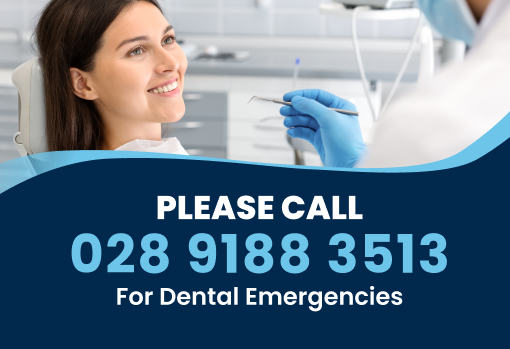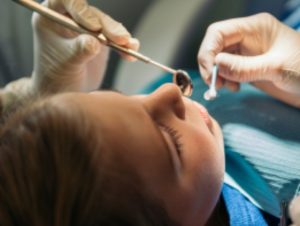Teaching children how to care for their teeth from a very early age is the best way to establish good oral hygiene habits. However, it is not always possible for children to avoid dental treatment altogether. If they are brought to see the dentist regularly, this gets them used to sitting in the chair, experiencing anxiety-free dentistry for children and seeing the surgery up close. It also allows the dentist to catch any developing problems sooner rather than later. The earlier a problem can be fixed, the less likely it is that the child will need hugely invasive surgery.
Children’s dentistry has come on leaps and bounds when it comes to offering stress-free dental care. If a child needs a procedure such as a filling or tooth extraction, dental anaesthesia means that they will not feel any pain during the treatment. For very anxious children, there are other options to explore too, such as sedation dentistry.
- Paediatric dentistry and different types of anaesthesia
If a child does need to have a procedure done, it is very common that the dentist will propose administering anaesthesia of some kind. This is to numb the area and calm the patient before doing the work. There are different types of anaesthesia that can all lead to stress-free dental care within children’s dentistry. Often, local anaesthesia is sufficient to numb the area through a pain-free injection.
If the child is especially anxious, or the procedure is more complex, your best option might involve sedation dentistry. This makes the child feel drowsy and allows the work to be carried out while they are awake, but unaware of what is happening. They will not have any recollections of the procedure after they are ‘brought back round’ afterwards. In the most complex cases, or for particularly young, anxious or neurodiverse children, a general anaesthetic can be introduced, which puts the patient into a state of controlled unconsciousness for the duration of the treatment.
- How to prepare your child for an anaesthetic
This will, again, depend on the age of the child facing dental treatment, as well as their level of understanding and ability to cope with stressful situations. Younger children do not have to be told in huge detail what is going to happen. It could be enough to simply say that they have a problem with their teeth that the dentist is going to fix while they fall asleep for a while, or have special medicine to take away the pain. Older children may want to know more details about what is going to happen. Either way, be honest, calm and positive with them, however worried you may be feeling yourself.
Talk them through what will happen on the day of their treatment. It could be that they will go to their normal dentist’s surgery for the procedure, or it could take place at a dental clinic or hospital. Show them a picture of the building if you think it will help and answer any questions they may have. It is a good idea to do a trial run to the location – without the child if possible – so that you know where to go and how long the journey will take. It is always better to be early or on time, rather than arrive late and add to the general stress levels.
- What happens on the day?
If your child wakes up feeling unwell on the day of their dental treatment, always let the dentist know. They may need to have their procedure delayed until they are well again. Check whether your child is allowed to eat and drink beforehand or not. This is very important. If there is food or drink in their stomach right before general anaesthetic or sedation dentistry, this could potentially cause choking or vomiting, which can be very dangerous.
Your child will be welcomed into the surgery and made to feel comfortable. The dentist and their team will explain what is happening at every stage. Specialist medical professionals will monitor your child for the entire time they are under general anaesthetic or sedation dentistry. In the case of local anaesthetic, the dentist and dental nurse will also keep a close eye on them for signs of pain, discomfort or distress.
Afterwards, your child will be woken up again and monitored while they return to their pre-anaesthesia state. You will receive post-procedure care instructions and advised on what painkillers to give when the numbing effects wear off. Many children will not like the numb feeling in their mouth, or the taste of blood or dental materials. However, this should wear off fairly quickly.





